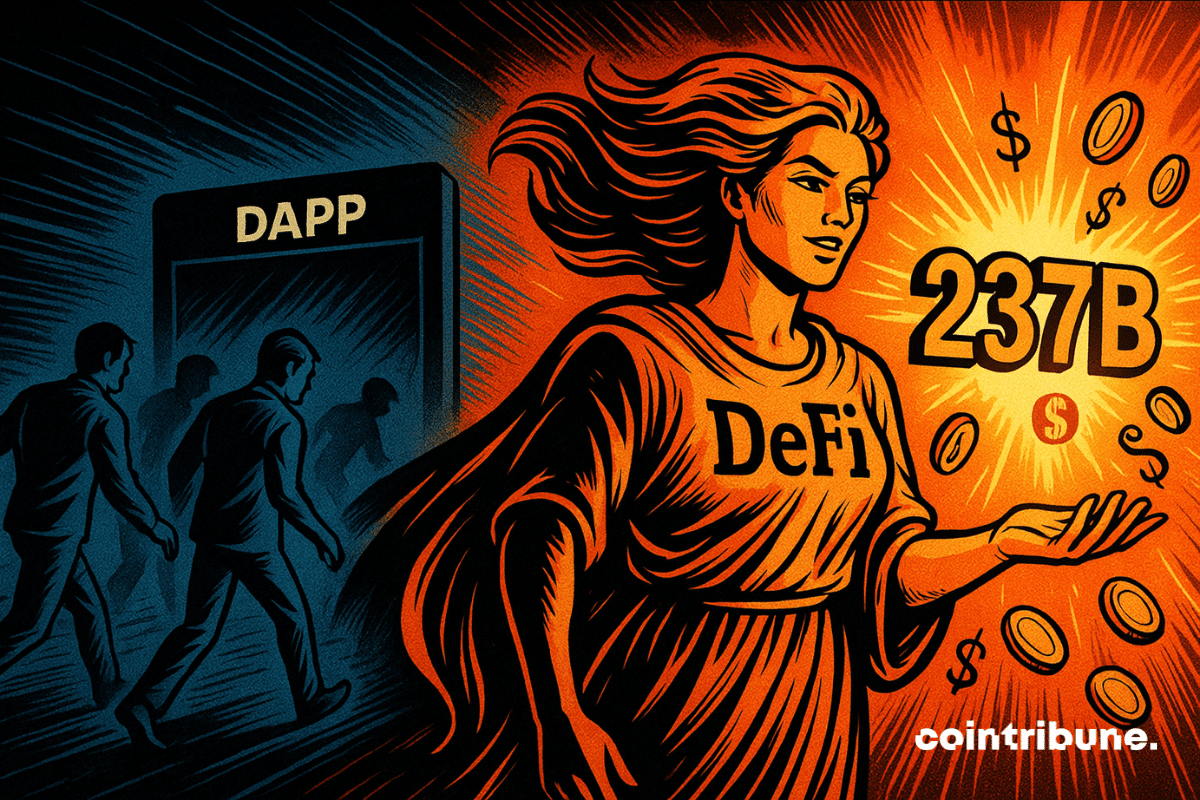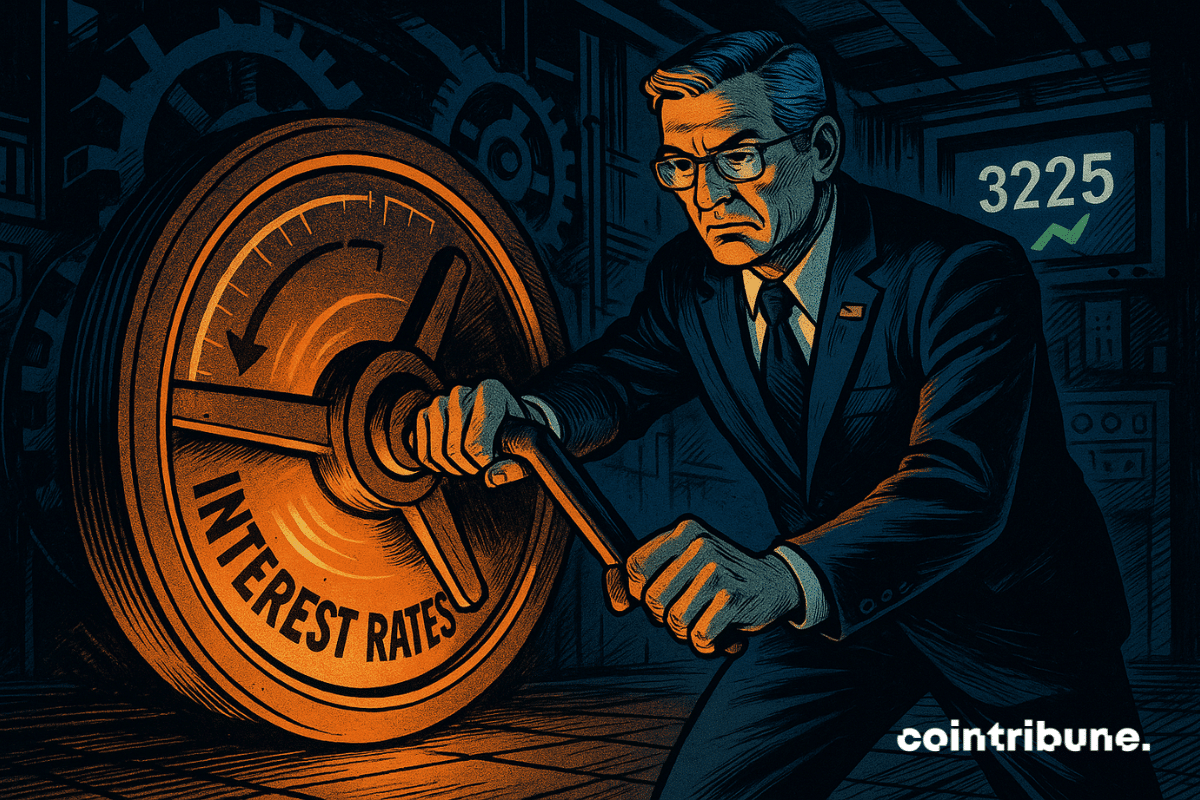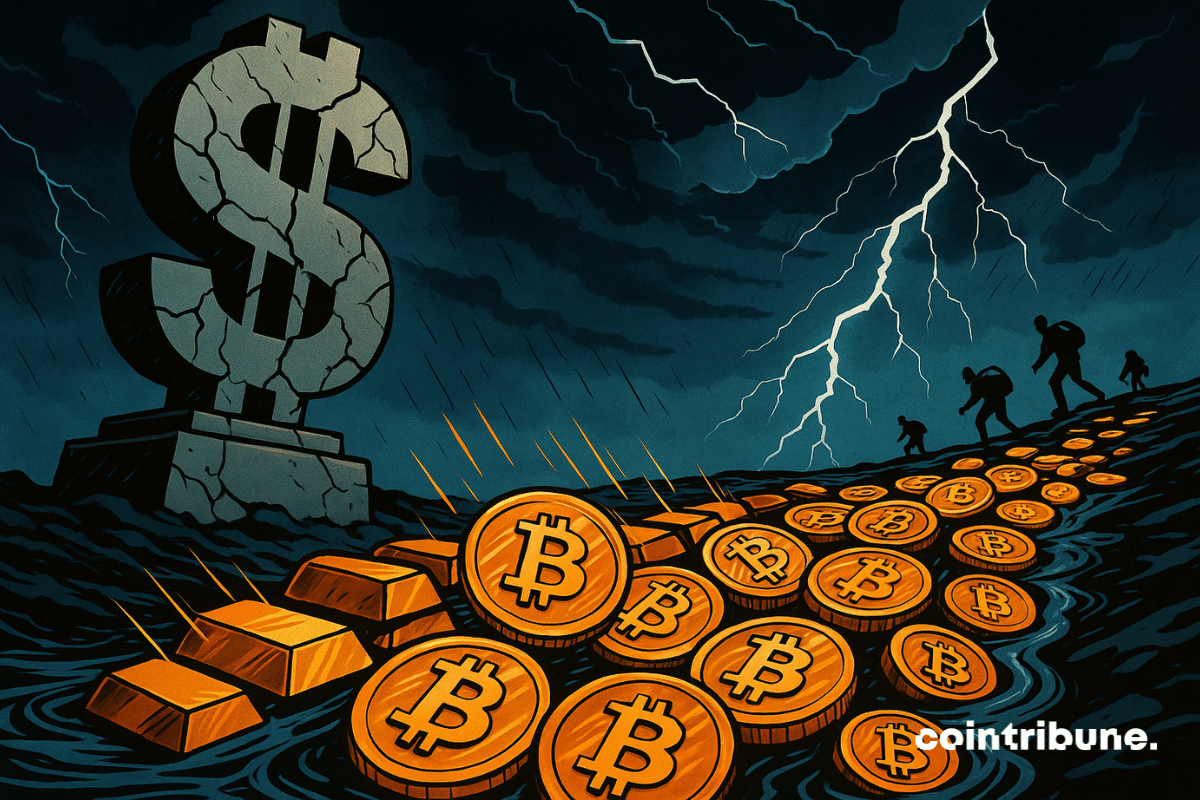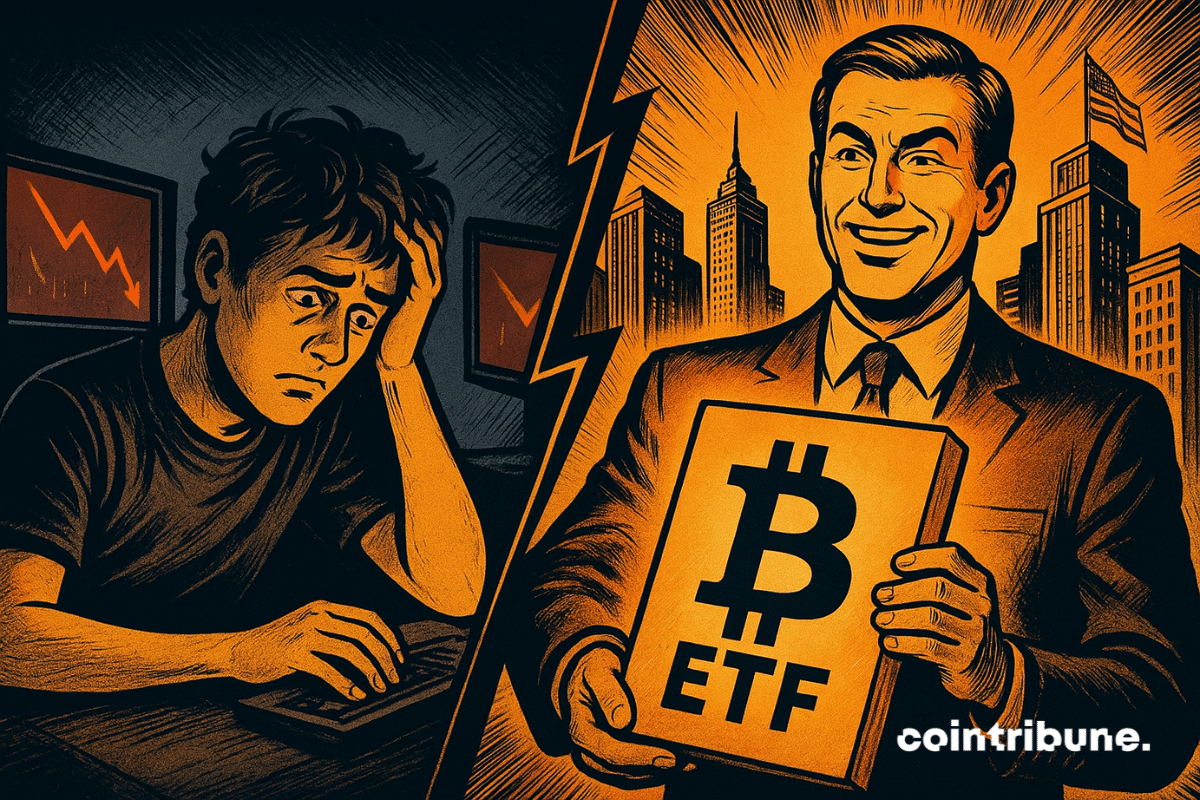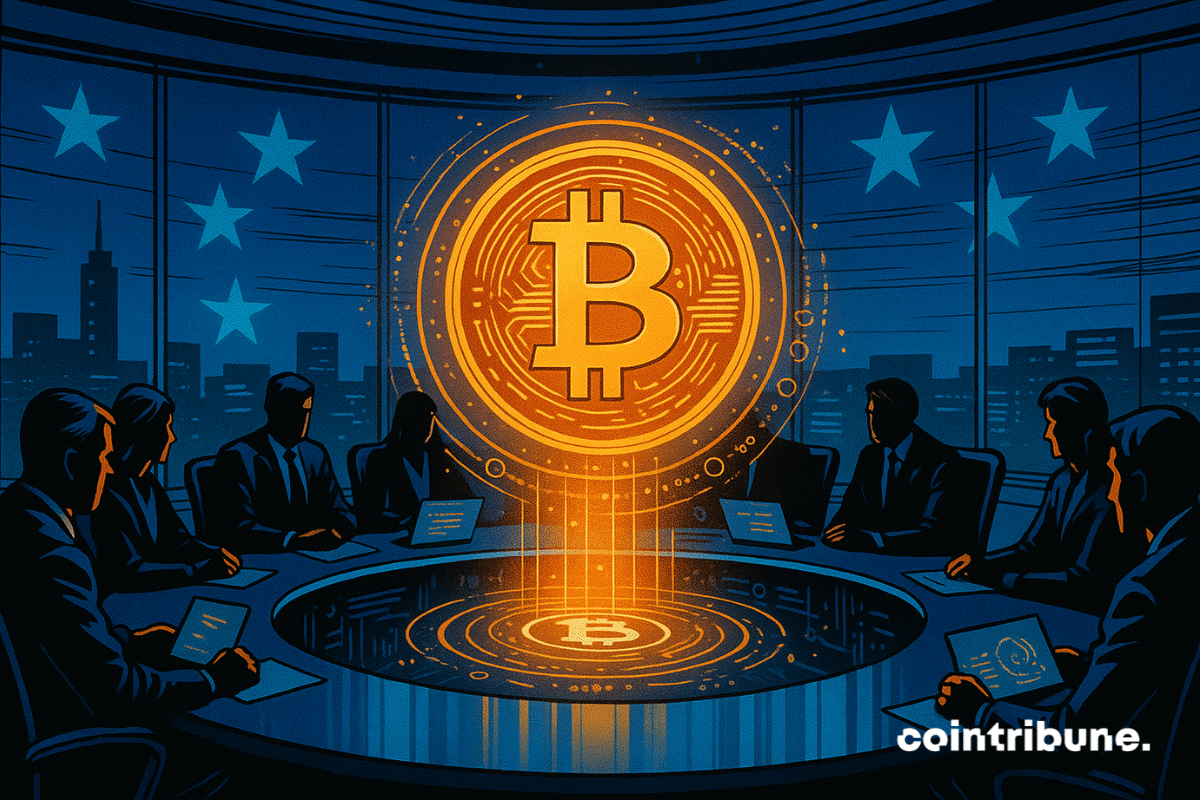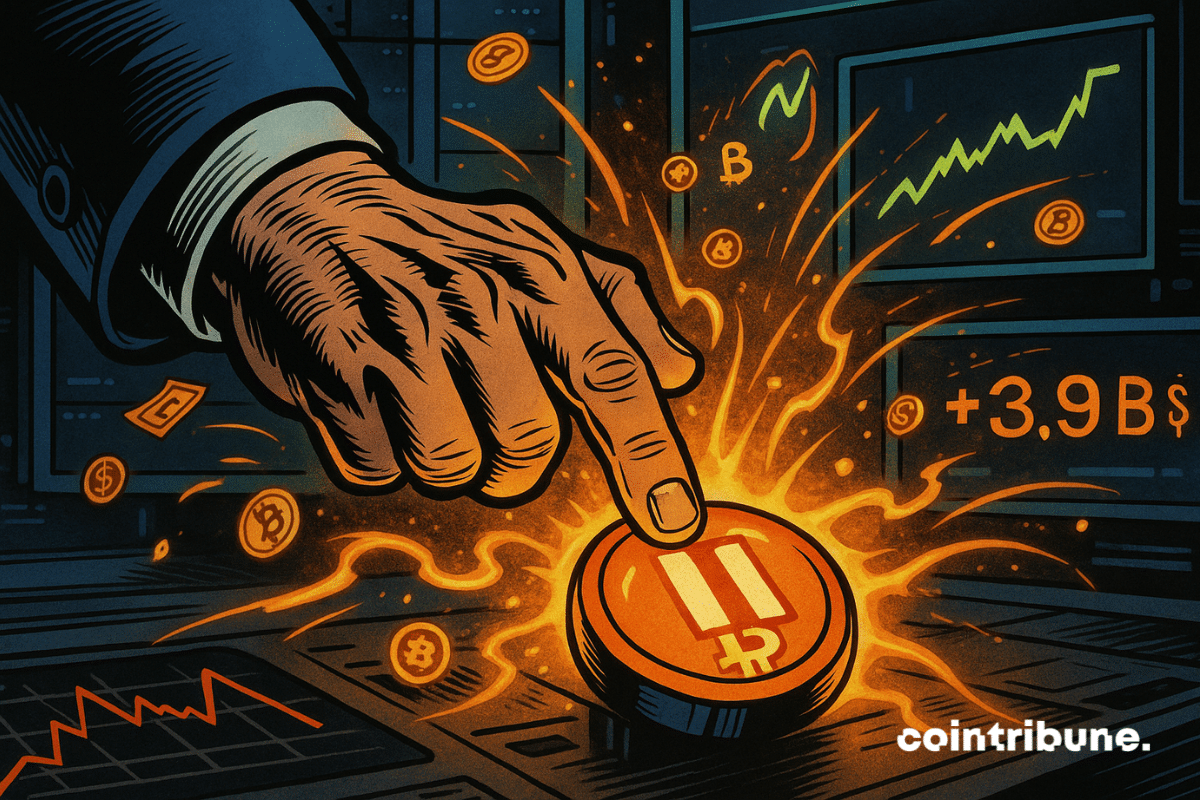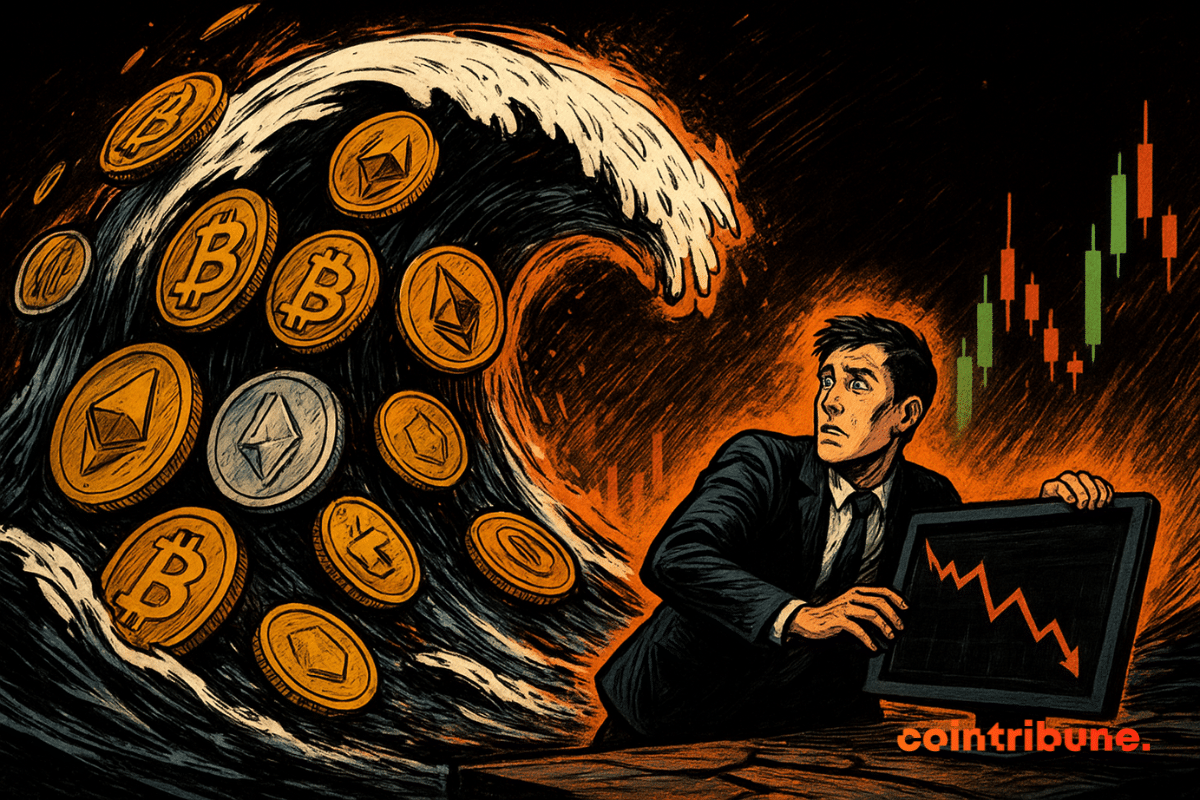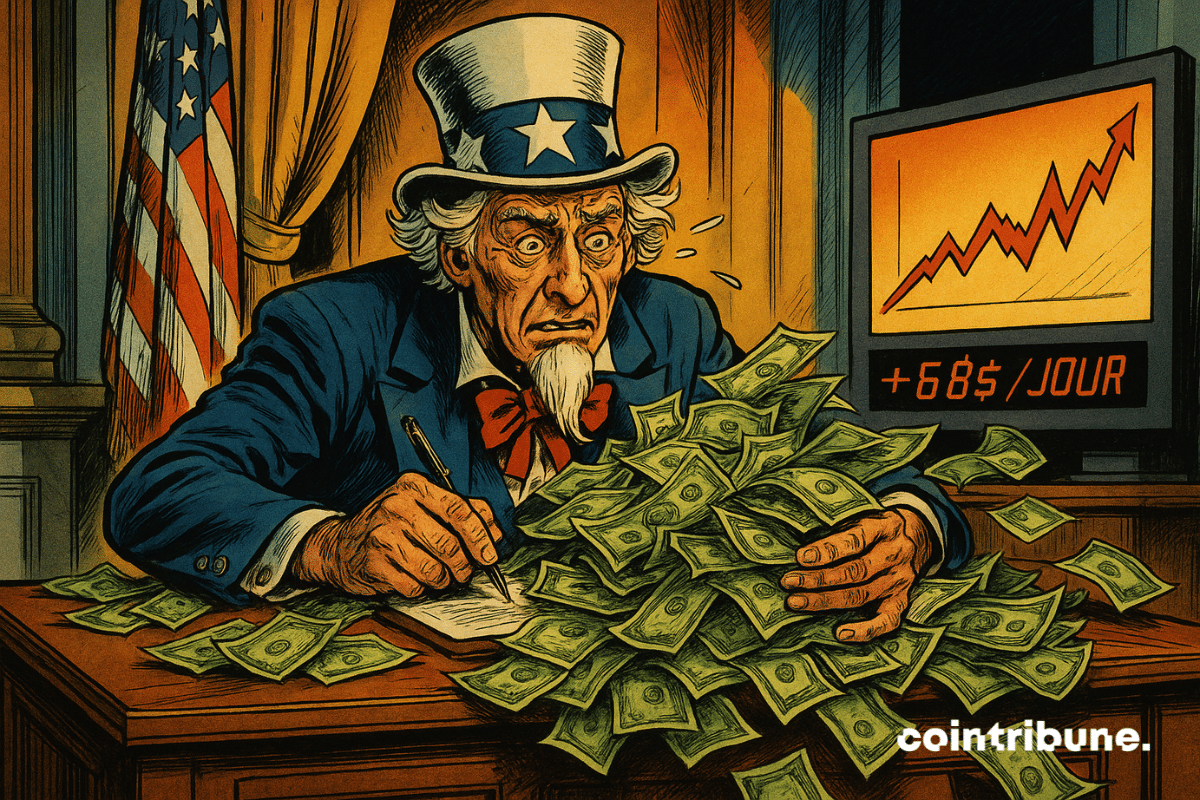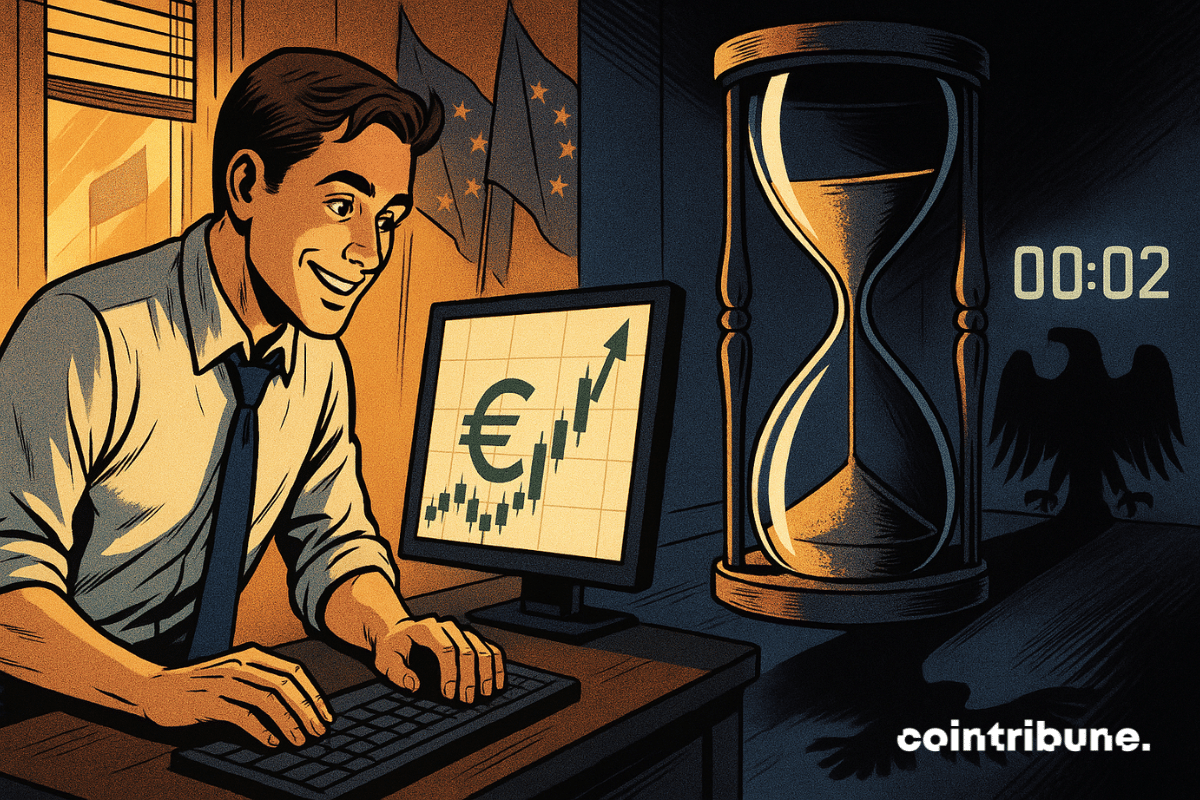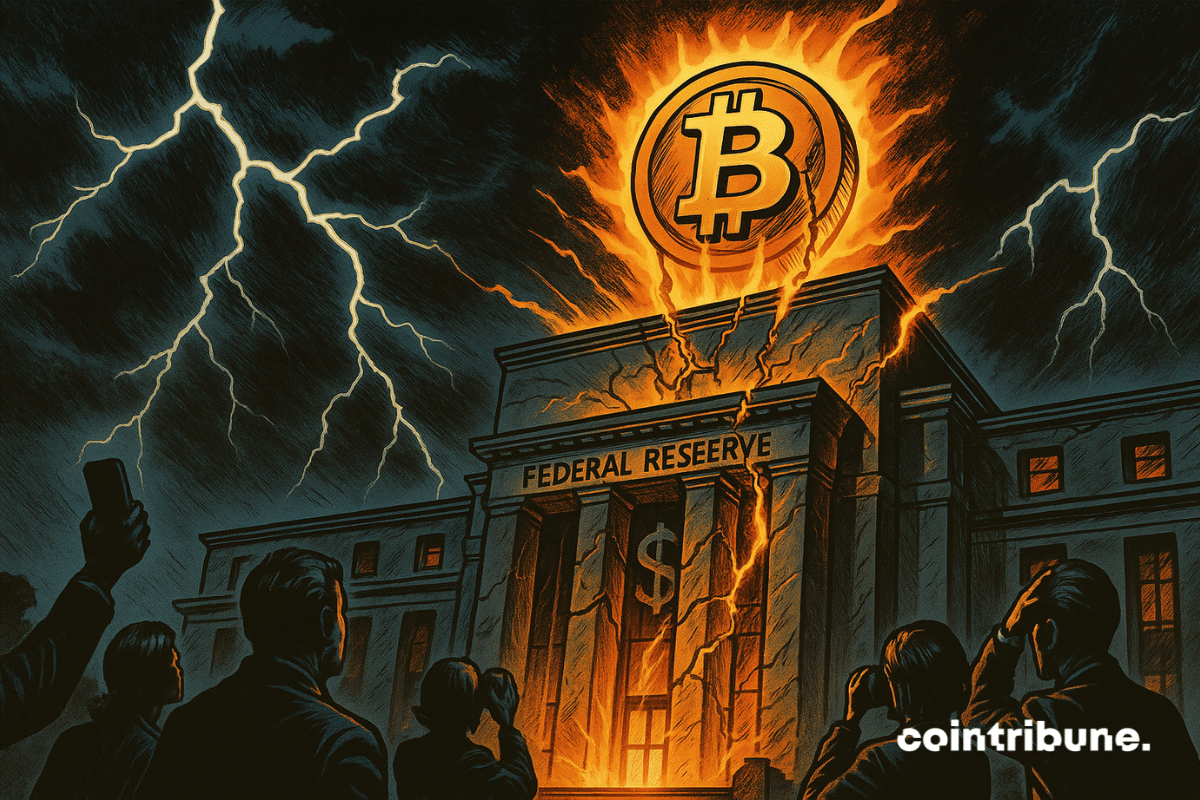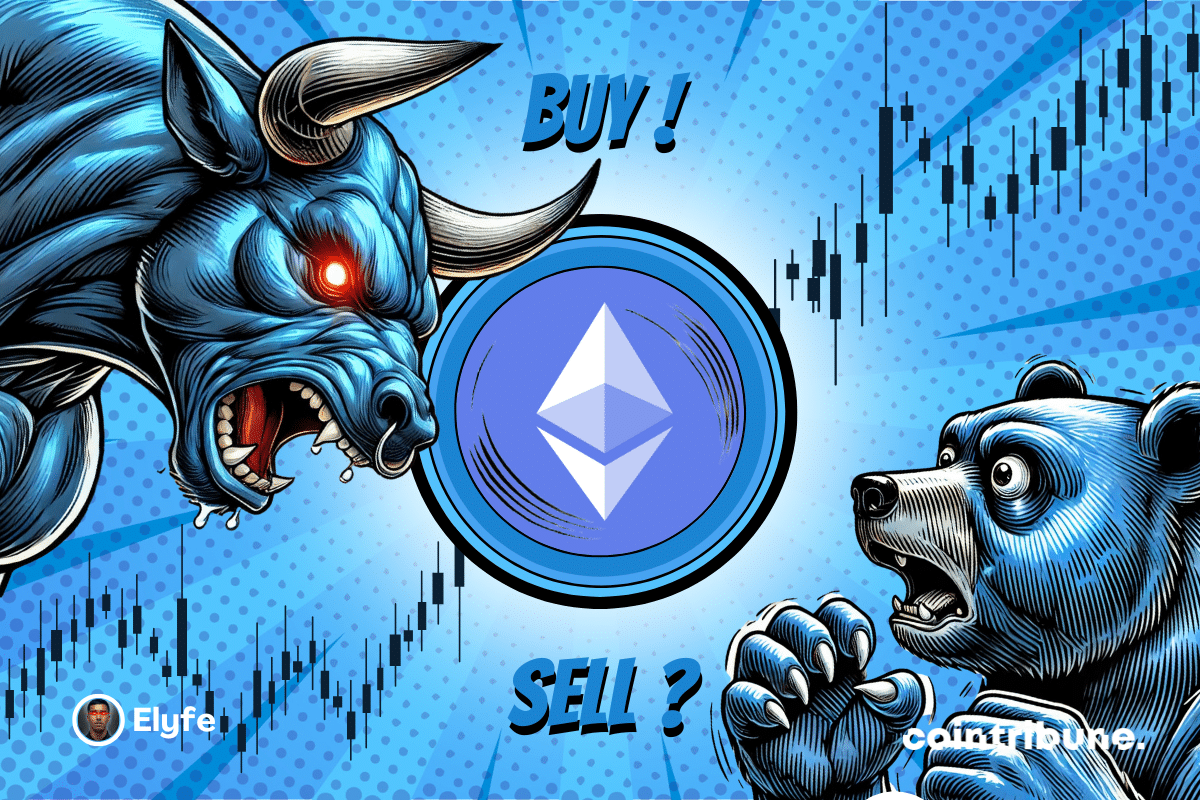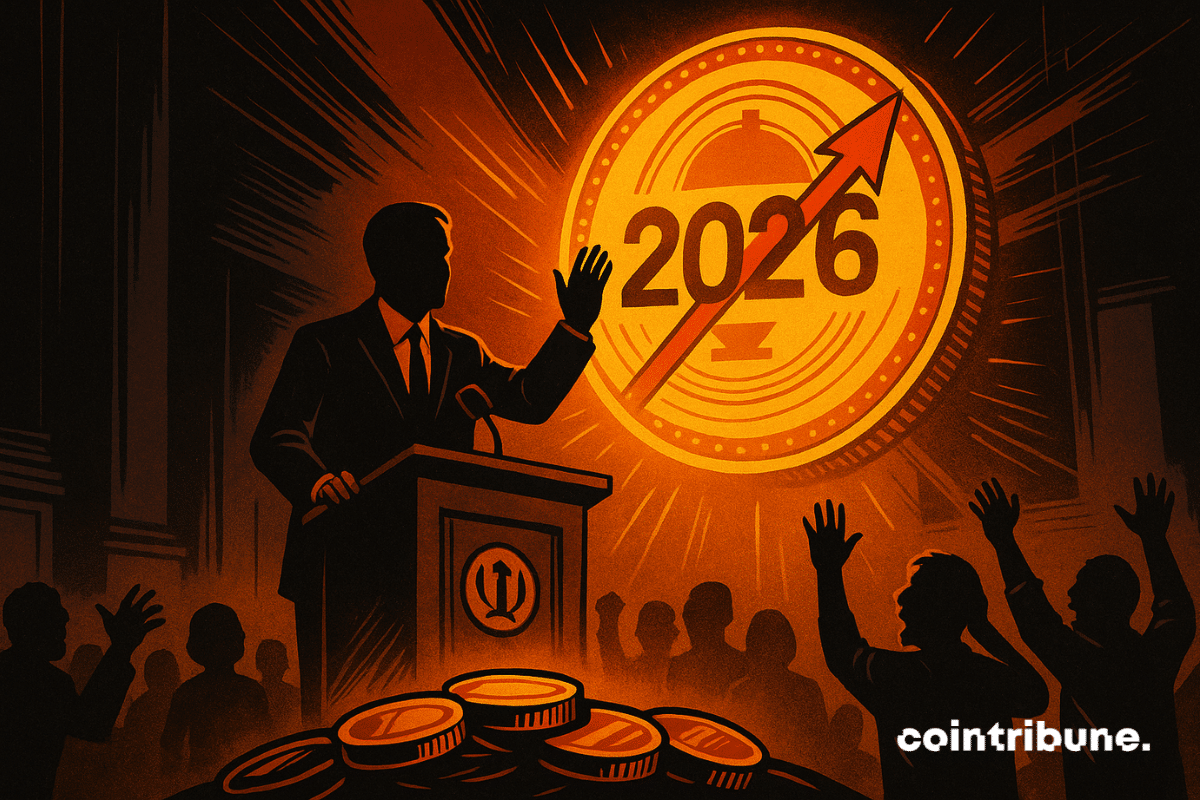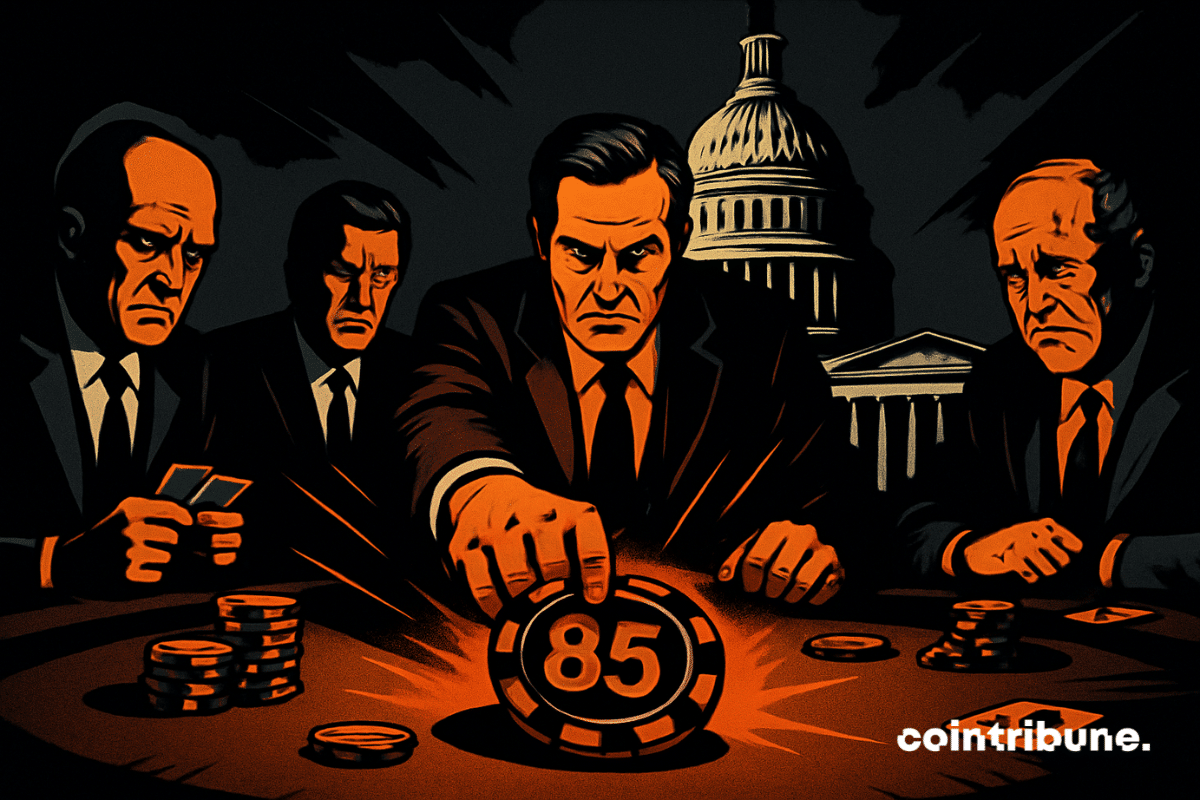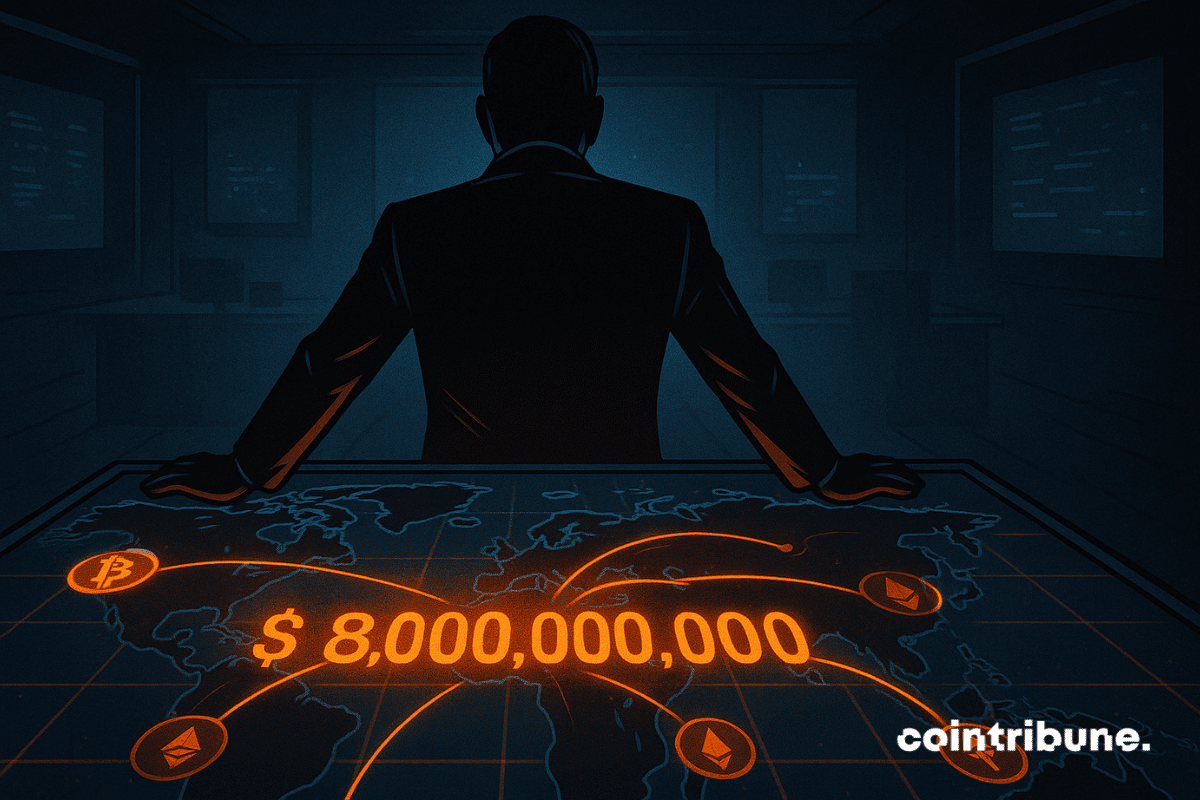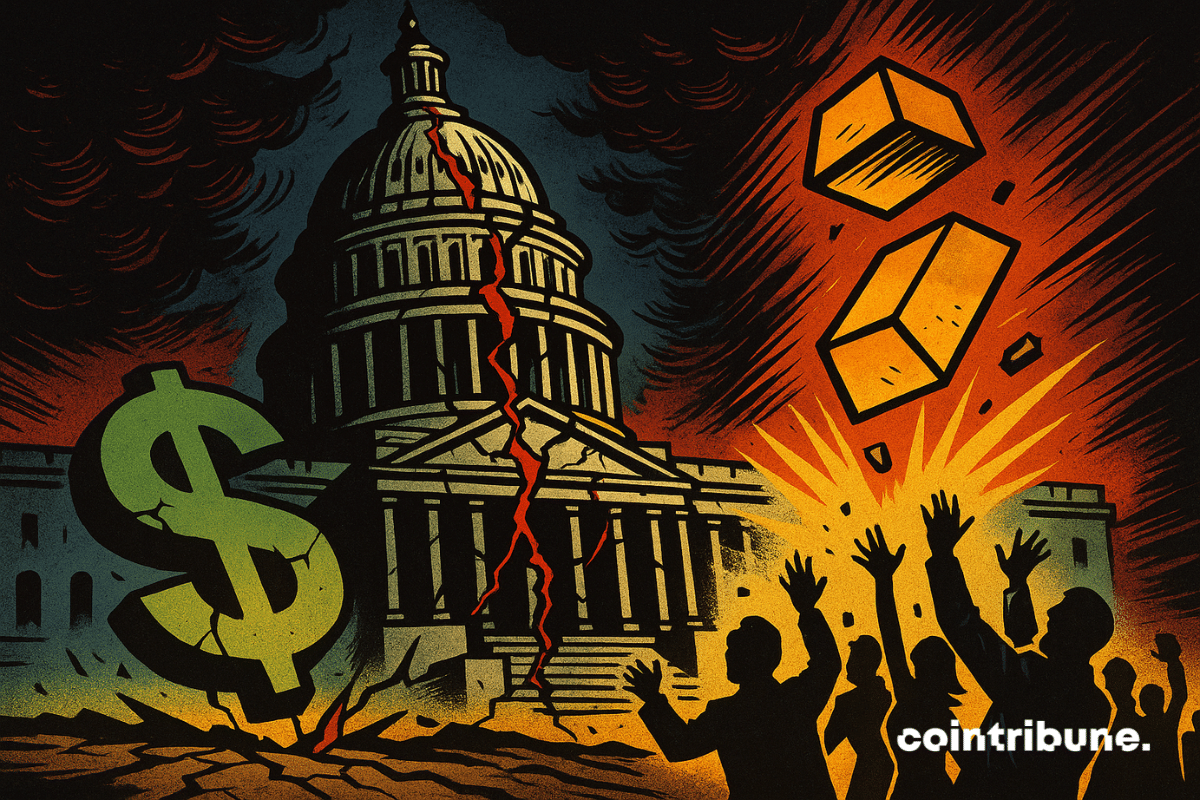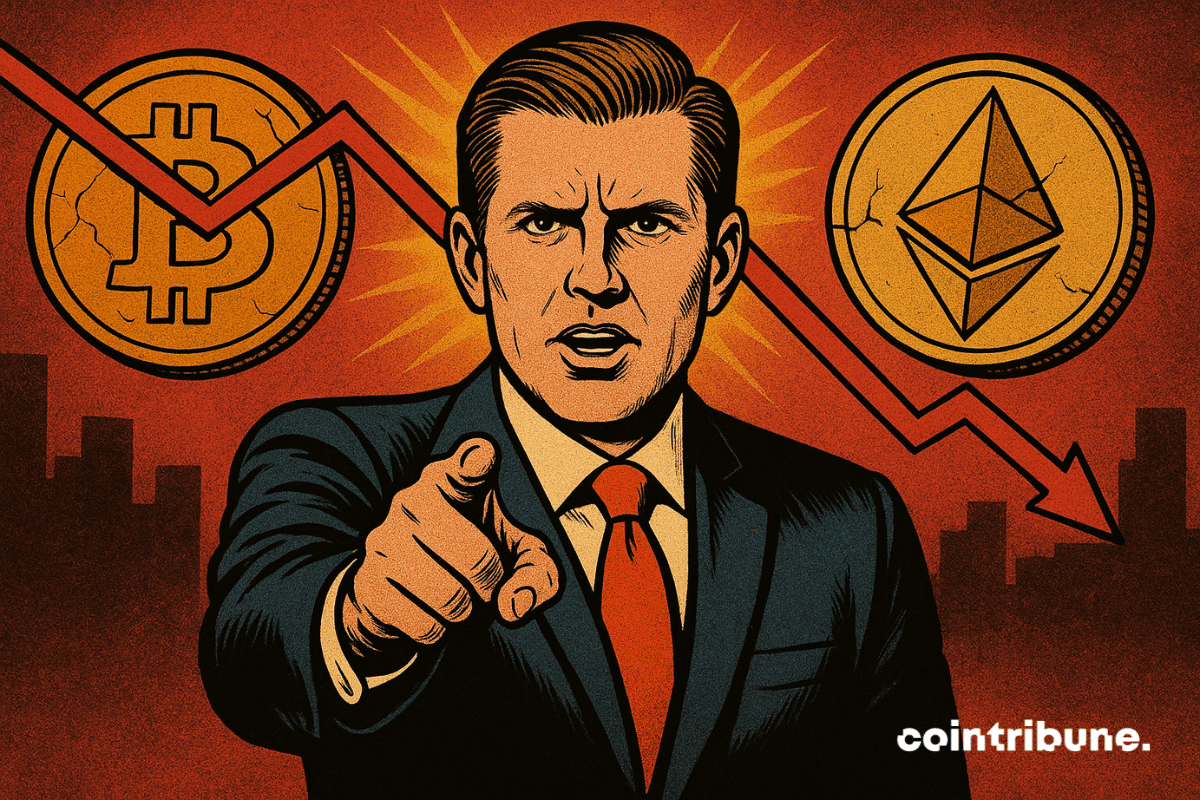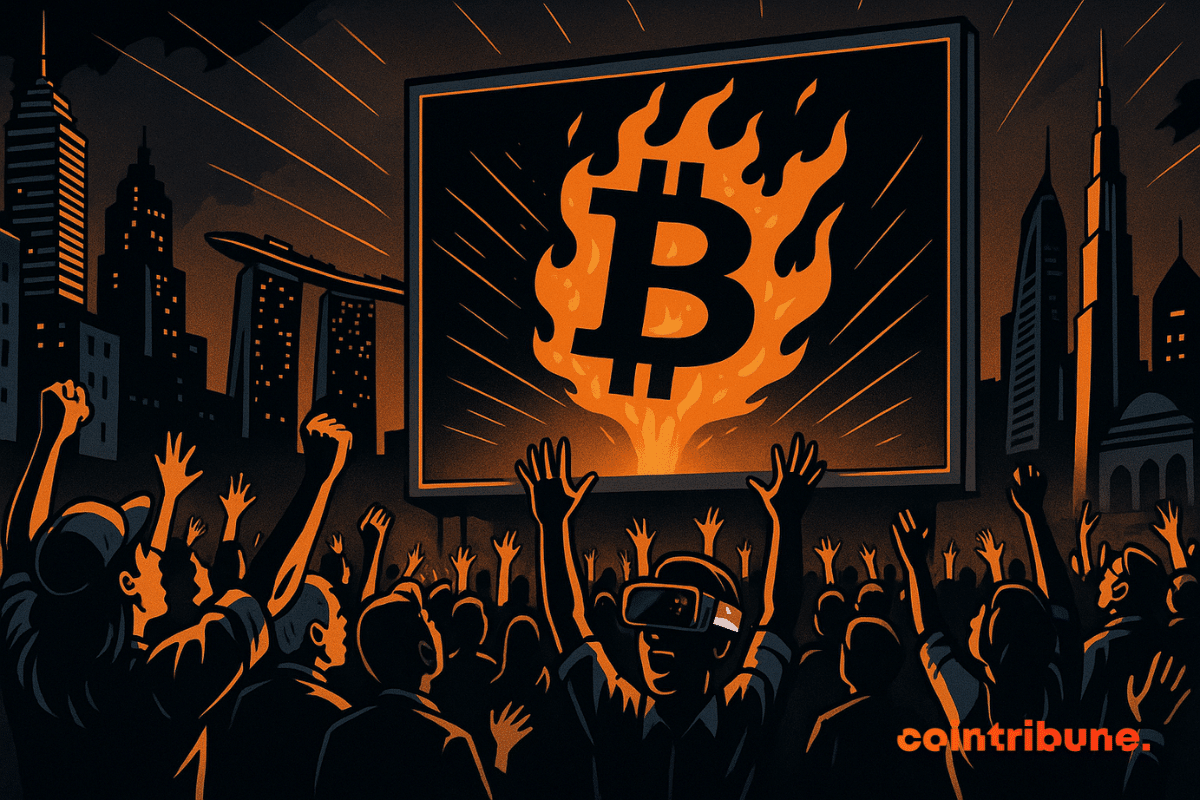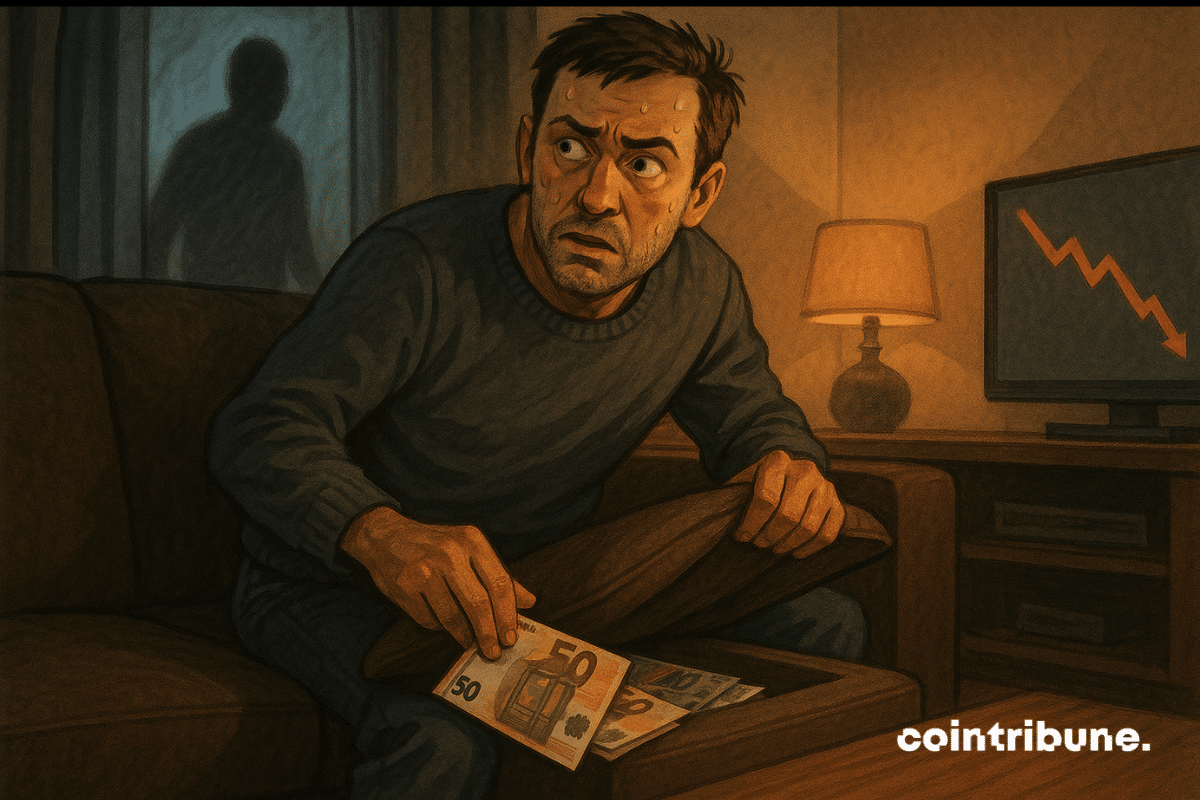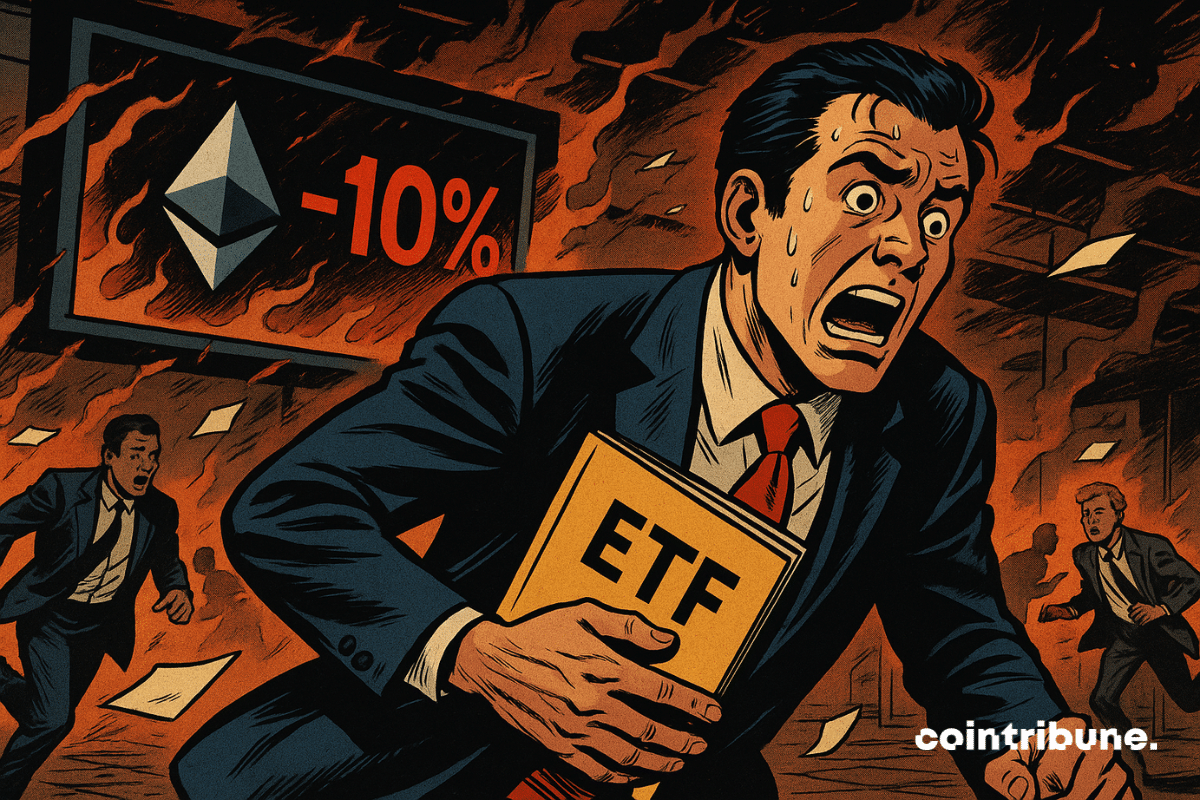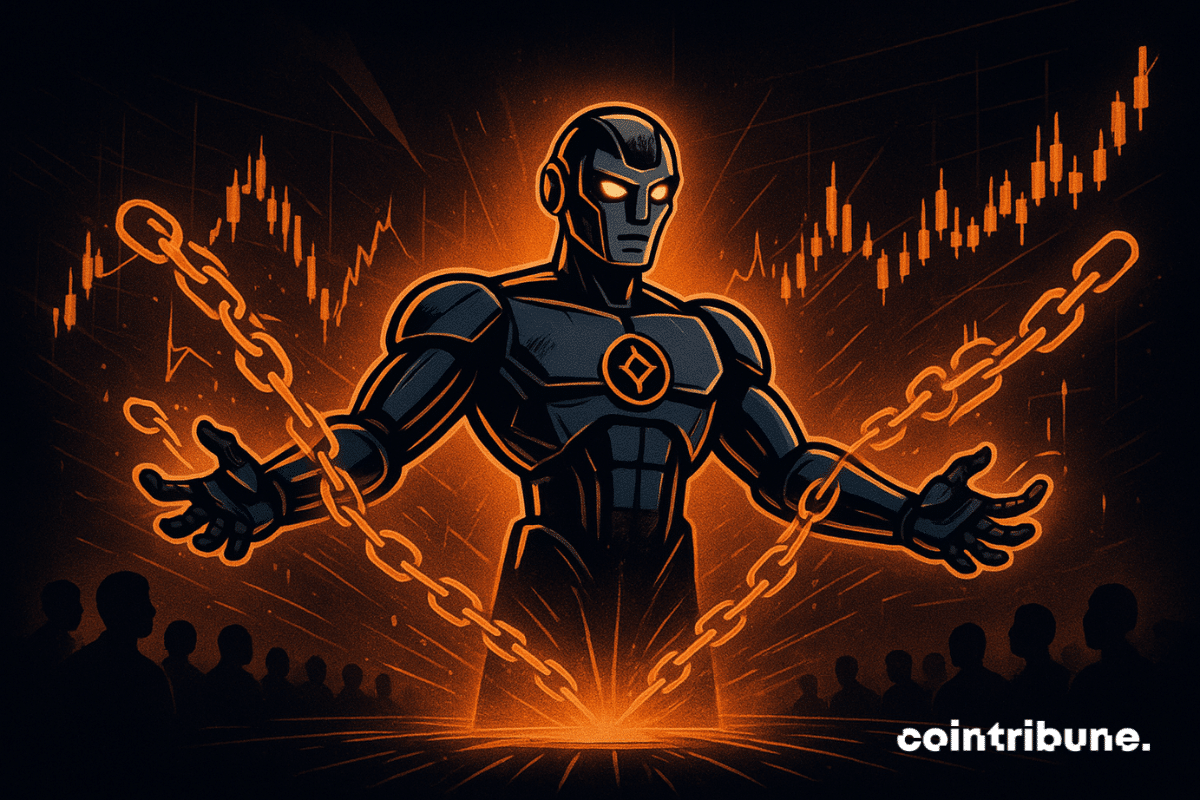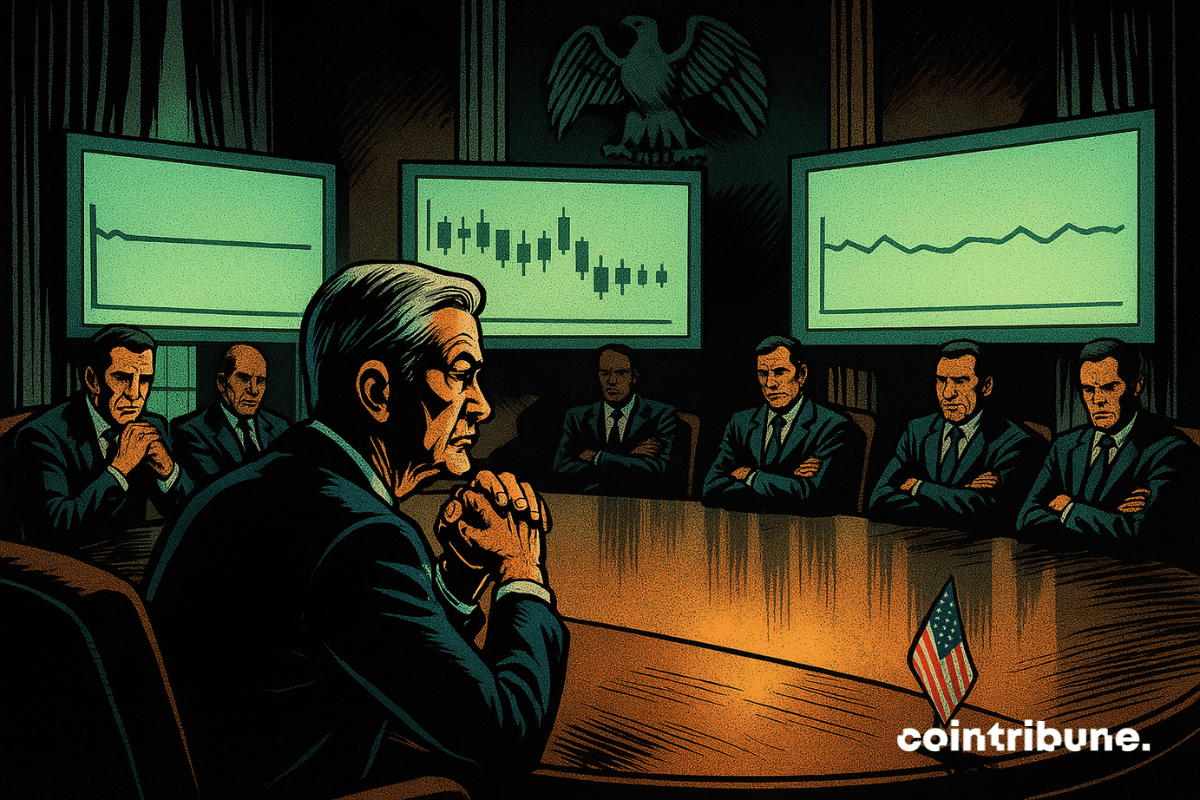While dApps are looking gloomy, DeFi is gorging on billions. Decline in clicks, increase in liquidity... traders are deserting, but capital has never been so loyal.
Finance News
The minutes of the Fed published on October 8 confirm an expected but delicate monetary shift. While the rate cut is now underway, the extent of the move by the end of the year still divides the committee. In a context of slowing employment, contained inflation, and government paralysis, this shift weighs heavily on market expectations. For crypto investors, sensitive to monetary policy signals, every Fed hesitation becomes a factor of volatility.
While bitcoin reaches a new all-time high at $126,000, the prevailing sentiment is that the market is already inaccessible. However, contrary to this impression, recent data paint a very different picture. According to Cosmo Jiang, partner at Pantera Capital, over 60% of investors still have no exposure to cryptos. This revealing figure reminds us that the majority of the adoption potential is yet to come.
Prediction markets have received a major vote of confidence after Intercontinental Exchange (ICE)—the operator of the New York Stock Exchange—announced a $2 billion strategic investment in Polymarket. The deal values the platform at roughly $8 billion, marking a stunning turnaround for a company that faced regulatory fire just three years ago.
While currencies wobble and the economy coughs, gold climbs, bitcoin soars... and investors applaud hoping not to jump with the monetary parachute.
Spot trading activity across crypto exchanges slowed in September, hitting its weakest level in months, even as institutional demand for Bitcoin surged through exchange-traded funds. The contrasting trends highlight a shift in market behavior, with speculative trading losing momentum while long-term investment flows gaining strength.
Less than two years after the entry into force of MiCA, the ambition of a unified European framework for cryptos is faltering. Amid national divergences, institutional criticisms and tensions over passporting, the European Union struggles to deliver the promised coherence. And now, ESMA is advocating to take back control, at the risk of reigniting tensions between Brussels and national regulators.
Tether, the ace of stablecoins, dribbles right up to Juventus' board. Governance, millions, and crypto at every level: soon a blockchain-sponsored VAR?
While bitcoin exceeded $126,000 for the first time, Michael Saylor chose to stay away. The leader of Strategy, accustomed to increasing his positions at every peak, made no purchases this quarter. This unusual decision contrasts with his aggressive accumulation strategy and raises questions among observers.
October is shaping up to be a pivotal month for the crypto market, with more than $1 billion worth of tokens preparing to enter circulation. A series of major token unlocks from leading projects, including Aptos, Ethereum Name Service (ENS), ImmutableX, and Bittensor, is set to test market resilience and liquidity. With billions in previously locked assets set to move freely, investors are bracing for heightened volatility and short-term price fluctuations across the board.
The United States debt is rushing toward 38 trillion dollars, triggering deep doubt about the solidity of fiat currencies. In a world where economic balances are shaky, this threshold is no longer just a macroeconomic indicator. It becomes the reveal of a system under strain, and revives the debate about the place of alternative assets in the face of the exhaustion of classic budgetary models.
The European stock market has just closed an exceptional week. The STOXX 600 rises by 2.8% and continues to break records. Health, banks, and mining lead the way, driven by palpable optimism.
Markets are almost unanimously betting on a rate cut on October 29. However, a much quieter scenario is starting to worry: that of a Fed status quo. In a context of incomplete economic data and persistent uncertainties about growth, the hypothesis of strategic immobility is gaining ground. What if this scenario, still largely underestimated, triggered the most violent market reaction?
Faced with a global financial system dominated by Washington, the BRICS are accelerating the implementation of an alternative payment network: BRICS Pay. This project, supported by a bloc expanded to ten countries, aims to reduce dependence on SWIFT and US sanctions. More than a simple technical initiative, it is a strategic bet to reshape the global monetary order and assert financial sovereignty in a world that has become multipolar.
The European Central Bank (ECB) is moving forward with preparations for a possible digital euro, marking another step in its ongoing multi-year project. In a recent notice, the ECB has signed agreements with several technology firms to develop key components of a potential digital currency. Although no final decision has been made, the groundwork underscores Europe’s push to modernize payments.
Chainlink’s new framework connects SWIFT messaging to blockchain, allowing tokenised funds and corporate workflows to operate smoothly on-chain.
Ethereum regains some stability after a correction phase. Find our complete analysis and the current technical outlook for ETH.
The prospect of increasing the flat tax resurfaces in budget discussions. Ahead of the 2026 finance bill, Bercy would consider raising the single flat tax, set since 2018 at 30%. No decision has been made yet, but the return of this measure, long considered a fiscal marker of Macronism, is already causing tensions. In a context of structural deficit and revenue pressures, the stability of the savings tax framework could be called into question.
Strasbourg could soon become the first major French city to adopt a municipal crypto. What was yesterday reserved for Web3 activist circles is now entering the local public debate. The City Council has adopted an unprecedented motion: to study the feasibility of a local digital currency. The goal is to explore new economic, social, and technological avenues. An unprecedented initiative for a major French metropolis, which explores digital levers serving the local economy and citizen participation.
Bitcoin consolidates above 100,000 dollars, driven by institutions and the anticipation of the outcome of the "BITCOIN Act."
The possibility of a U.S. government shutdown is dominating prediction markets, with traders betting heavily on the outcome. Platforms like Kalshi and Polymarket show a strong consensus that negotiations in Washington are unlikely to deliver a deal in time. Rising volumes and market probabilities above 85% suggest that participants see a shutdown as the most likely outcome.
Explosive leaks reveal how a Moscow-linked network allegedly manipulated the global financial system through crypto. Eight billion dollars in stablecoin transactions were reportedly used to bypass Western sanctions and influence the Moldovan political scene. A disturbing indicator of a new hybrid war where digital money becomes a weapon of influence.
On the brink of a total shutdown, Washington shakes global markets. This Monday, September 29, the budget deadlock in the US Congress revives the specter of a shutdown as early as Wednesday, plunging investors and institutions into uncertainty. In an already uncertain climate, marked by central bank hesitations and the fragility of US indicators, this political stalemate raises fears of a major loss of visibility. Investors are repositioning urgently, between a flight to safe havens and anticipation of macroeconomic turbulence.
The cryptocurrency market faces renewed pressure, with both Bitcoin and Ethereum testing key support levels after a week of declines. Predictably, this market dip has left traders weighing whether this downturn signals further weakness or a chance to re-enter. Amid the uncertainty, President Donald Trump's son, Eric Trump, has stepped in with a familiar message, urging market participants to “buy the dips.”
While some governments are struggling, Singapore and Dubai are fueling crypto. What if the finance of tomorrow came from... paradise islands obsessed with wallets?
James Wynn, the man who flirted with billions in crypto, now bets on ASTER… An airdrop, a 3x leverage, and a lot of boldness: hold-up or hara-kiri?
While Europe accelerates towards digital payments and prepares the digital euro, the ECB creates a surprise. It recommends keeping cash at home. This injunction reveals a reality too often overlooked in official speeches: the fragility of digital systems in the face of crises. Such a deliberate return to cash does not mark a step backwards, but a clear anticipation of systemic risks, between outages, geopolitical tensions and cyberattacks.
Ethereum shunned, Wall Street panics, BlackRock empties its bags... Crypto smells burnt, but some billionaires seem to sense a good buyout scent. The smell of sales?
Leading blockchain analytics platform is set to test the heights of artificial intelligence in cryptocurrency by unveiling a mobile agent designed to make trading more interactive. The crypto intelligence firm aims to simplify on-chain trading by introducing a natural conversation feature.
The PCE inflation figures for the month of August, published this Friday, September 27, confirm apparent stability, with progress as expected. A key indicator for the Federal Reserve, the PCE remains above the target, while American consumption continues to surprise with its strength. In a context of monetary tension, these data maintain uncertainty about the future trajectory of interest rates.
